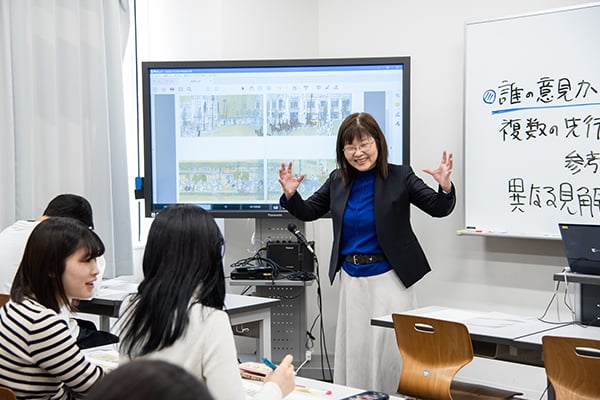
Everyday exchanges such as the simple salutation “Goodbye!” can raise all manner of questions, both of language and of culture. The word “goodbye” derives from the English “God be with ye!” and testifies to the close link between language, culture, and religion. In the Department of Japanese Studies we consider such issues as we grapple with the origins of such greetings as “Sayonara,” the nature of religious consciousness among the Japanese people, the origins of Noh and Kabuki, and the breadth and depth of Japanese literature from the Tales of Genji to modern writers such as Kawabata. The aim is to further the understanding and appreciation of our own language and culture while drawing on our individual experiences as native Japanese people. Japan is no longer a mysterious island nation of the Orient. The incredibly speedy recovery from the aftermath of defeat in war that brought Japan to the forefront of the world economy drew attention from every part of the globe. We can no longer view our country in isolation; we must assume an objective position and gain a deeper understanding of our situation so we can present ourselves to the world in an informed manner. The focus within the Department is on the deepening of our understanding of Japan in terms of its language, culture, and literature. We study the characteristics of the Japanese language in a comparative light, consider the nature of Japanese language education for non-native speakers, and assess the historical changes in Japanese thought through analytical studies of literary works, art, and the performing arts, all of which gives the Department a unique blend of avenues of research on Japan.

Features of the Department
- A multi-disciplinary approach to the study of Japan is taken, with courses offered from fields as diverse as linguistics, Japanese language educational theory, cultural theory, and literary criticism.
- Students have flexibility in their course choices. They may choose either to specialize in one subject among Japanese culture, Japanese literature, Japanese linguistics, and Japanese language education or to take a more eclectic approach with courses chosen from a mixture of these fields.
- The cultivation of a greater power of expression and understanding of the Japanese language is achieved through training in practical skills by means of debate, text analysis, and the study of the relationship between human anatomy and language.
- By participating in Japanese language classes for overseas students, a practical view of the process of teaching and learning Japanese is gained.
